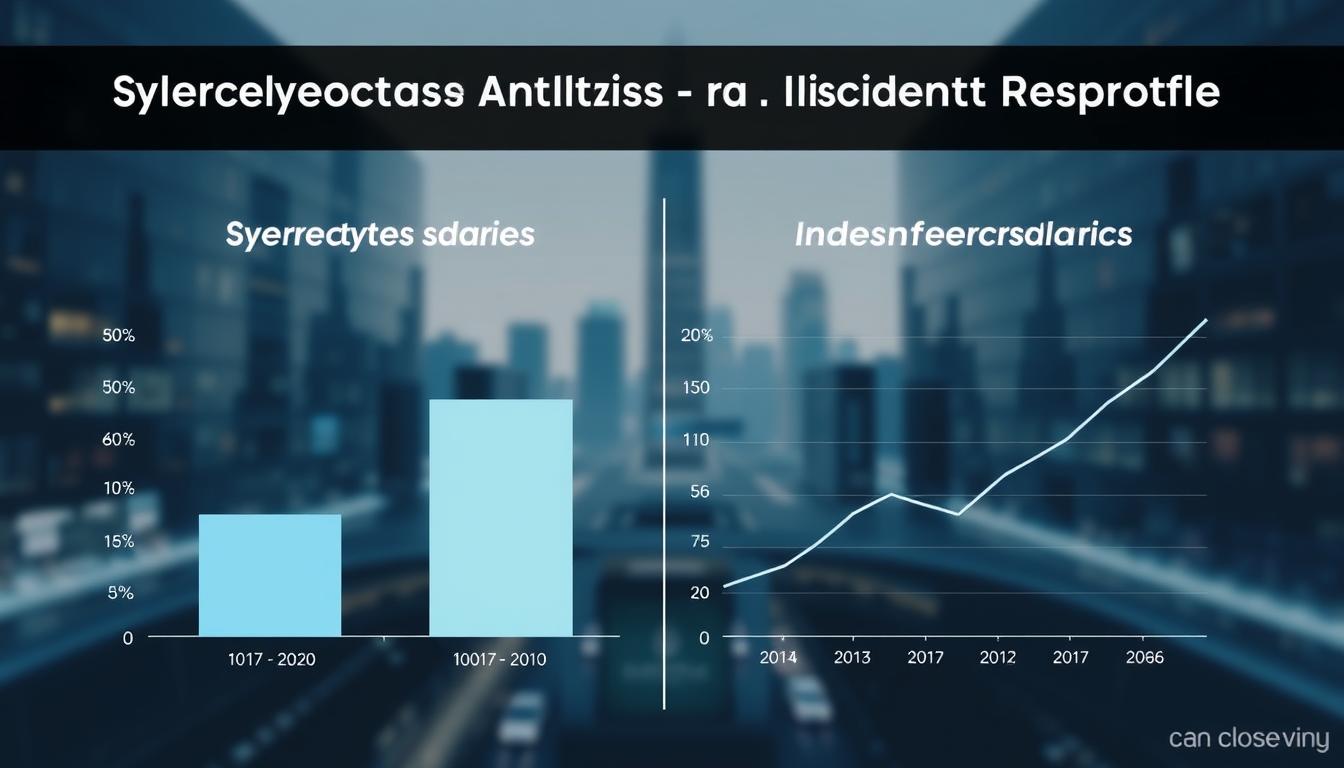In the ever-evolving landscape of cybersecurity, understanding the distinct roles of a Cybersecurity Analyst and an Incident Responder is crucial for organizations to effectively manage and respond to cyber threats.
A Cybersecurity Analyst is primarily responsible for protecting an organization’s computer systems and networks from cyber threats by analyzing potential vulnerabilities and implementing measures to prevent attacks.

Edit
Full screen
Delete
Cybersecurity Analyst vs. Incident Responder — What’s the Difference?
In contrast, an Incident Responder is tasked with responding to and managing the aftermath of a cyber attack or security breach, minimizing damage and restoring systems to a secure state.
Key Takeaways
- Understand the distinct responsibilities of Cybersecurity Analysts and Incident Responders.
- Learn how each role contributes to an organization’s cybersecurity posture.
- Discover the key differences between these two critical cybersecurity roles.
- Gain insights into the skills and expertise required for each position.
- Explore how organizations can effectively utilize both roles to enhance their cybersecurity.
The Evolving Landscape of Cybersecurity Careers
In today’s digital age, the importance of robust cybersecurity measures has given rise to a wide range of career opportunities. As organizations increasingly rely on technology, the need for skilled cybersecurity professionals has become paramount.
The Rising Demand for Specialized Security Roles
The cybersecurity landscape is rapidly evolving, driven by the emergence of new threats and technologies. This evolution has created a high demand for specialized security roles that can effectively counter modern cyber threats. Professionals with expertise in areas such as threat analysis, incident response, and security architecture are in high demand.
How Security Teams Are Structured in Modern Organizations
In modern organizations, security teams are structured to address various aspects of cybersecurity. These teams often include roles such as cybersecurity analysts, incident responders, and chief information security officers (CISOs). The structure of these teams can vary depending on the organization’s size, industry, and specific security needs.
Effective security teams require a combination of technical expertise, strategic thinking, and collaboration. By understanding the evolving landscape of cybersecurity careers, organizations can better structure their security teams to meet current and future challenges.
What is a Cybersecurity Analyst?
In the ever-evolving landscape of cybersecurity, the role of a Cybersecurity Analyst has become increasingly crucial. These professionals are the first line of defense against cyber threats, working tirelessly to protect an organization’s digital assets.
Edit
Delete
Core Responsibilities and Daily Tasks
A Cybersecurity Analyst’s primary responsibility is to monitor an organization’s network for potential security breaches. Their daily tasks include analyzing security alerts, investigating suspicious activity, and implementing measures to prevent future attacks. They also conduct risk assessments and vulnerability testing to identify potential weaknesses in the organization’s security posture.
Additionally, Cybersecurity Analysts are often involved in the development and implementation of security policies and procedures. They work closely with other IT teams to ensure that security measures are integrated into all aspects of the organization’s technology infrastructure.
Required Technical Skills
To be effective, a Cybersecurity Analyst must possess a strong foundation in technical skills. These include:
- Knowledge of operating systems, including Windows, Linux, and Unix
- Familiarity with networking protocols and devices
- Understanding of security frameworks and compliance regulations
- Experience with security tools such as firewalls, intrusion detection systems, and security information and event management (SIEM) systems
Essential Soft Skills for Success
While technical skills are crucial, soft skills are equally important for a Cybersecurity Analyst. These include:
Communication and Reporting Abilities
A Cybersecurity Analyst must be able to communicate complex security information to both technical and non-technical stakeholders. This includes writing clear and concise reports on security incidents and providing recommendations for improvement.
Analytical Thinking
The ability to analyze complex data sets and identify patterns is critical for a Cybersecurity Analyst. They must be able to think critically and make informed decisions based on their analysis.
By combining technical expertise with strong soft skills, a Cybersecurity Analyst can effectively protect an organization’s digital assets and contribute to the overall success of the security team.
What is an Incident Responder?
The Incident Responder plays a pivotal role in the cybersecurity landscape, focusing on responding to and managing security incidents. This role is critical in minimizing the impact of security breaches and restoring normal operations as quickly as possible.
Primary Duties and the Incident Response Lifecycle
Incident Responders are responsible for a range of duties that are crucial to managing and mitigating security incidents. Their primary responsibilities include:
- Identifying and classifying security incidents
- Containing and eradicating threats
- Recovering systems and data
- Post-incident activities, such as reviewing and improving incident response plans
The incident response lifecycle typically involves several stages, including preparation, identification, containment, eradication, recovery, and lessons learned. Effective Incident Responders must be adept at navigating this lifecycle to minimize the impact of security incidents.
Technical Expertise Requirements
To be successful, Incident Responders require a strong foundation in technical skills, including:
- Knowledge of operating systems and network protocols
- Familiarity with threat analysis and mitigation techniques
- Understanding of incident response tools and technologies
Proficiency in these areas enables Incident Responders to effectively manage and mitigate security incidents.
Critical Soft Skills
In addition to technical expertise, Incident Responders must possess certain soft skills to perform their duties effectively. These include:
Performing Under Pressure
Incident Responders often work under intense pressure, particularly during major security incidents. The ability to remain calm and focused is crucial in these situations.
Decision-Making Abilities
Making swift and informed decisions is critical in incident response. Incident Responders must be able to analyze situations quickly and make decisions that minimize the impact of security incidents.
By combining technical expertise with these critical soft skills, Incident Responders can effectively manage security incidents and protect their organizations.
Cybersecurity Analyst vs. Incident Responder — What’s the Difference?
Understanding the differences between Cybersecurity Analysts and Incident Responders is crucial for effective security operations. While both roles are essential in the cybersecurity landscape, they serve distinct functions within an organization’s security framework.
Proactive vs. Reactive Approaches to Security
Cybersecurity Analysts typically adopt a proactive approach to security, focusing on preventing incidents before they occur. They analyze potential vulnerabilities, implement security measures, and monitor systems for suspicious activity. In contrast, Incident Responders take a reactive stance, responding to security incidents after they have occurred. As noted by cybersecurity expert Bruce Schneier, “The best defense is a good offense, but you still need a good defense.” This highlights the complementary nature of these roles in security operations.
Scope of Responsibilities and Authority
The scope of responsibilities for Cybersecurity Analysts includes risk assessment, security policy development, and continuous monitoring of security systems. Incident Responders, on the other hand, are responsible for containing and eradicating threats, as well as post-incident analysis. “The key to effective incident response is swift action and clear communication,” according to a report by the SANS Institute. This underscores the different priorities of these roles in cybersecurity roles comparison.
Work Environment and Stress Levels
Cybersecurity Analysts often work in a more predictable environment, with their tasks centered around prevention and planning. Incident Responders, however, operate in a high-pressure environment, particularly during security incidents. The stress levels can be significantly higher for responders due to the time-sensitive nature of their work. As former Cisco CSO, John Stewart, once said, “Incident response is like being a firefighter; you’re always on call, ready to respond at a moment’s notice.”
How These Roles Collaborate in Security Operations
Despite their differences, Cybersecurity Analysts and Incident Responders collaborate closely in security operations. Analysts provide the foundational security measures that responders rely on during incidents. Responders, in turn, provide valuable feedback to analysts on the effectiveness of current security measures and areas for improvement. This collaboration is essential for a robust proactive vs reactive security strategy, ensuring that an organization’s security posture is comprehensive and resilient.
Tools and Technologies Used by Each Role
The effectiveness of Cybersecurity Analysts and Incident Responders is significantly enhanced by the tools and technologies at their disposal. These professionals rely on a wide range of cybersecurity tools to perform their duties effectively.
Cybersecurity Analyst’s Technology Stack
Cybersecurity Analysts use various tools to monitor and analyze security-related data. Some of the key technologies include:
Monitoring and Analysis Tools
- Security Information and Event Management (SIEM) systems like Splunk and IBM QRadar.
- Intrusion Detection Systems (IDS) such as Snort and Suricata.
Vulnerability Assessment Platforms
- Nessus and OpenVAS for identifying vulnerabilities.
- Qualys for continuous monitoring and vulnerability management.
Incident Responder’s Essential Tools
Incident Responders have their own set of specialized tools for handling security incidents.
Digital Forensics Software
- EnCase and FTK (Forensic Toolkit) for forensic analysis.
- Volatility for analyzing memory dumps.
Threat Hunting and Containment Solutions
- Threat intelligence platforms like ThreatQuotient.
- Endpoint Detection and Response (EDR) solutions such as CrowdStrike.
Both Cybersecurity Analysts and Incident Responders must stay updated with the latest tools and technologies to effectively counter emerging threats.
Educational Requirements and Certifications
As cybersecurity threats become more sophisticated, the educational requirements and certifications for cybersecurity professionals have become more stringent. Both Cybersecurity Analysts and Incident Responders must have a strong foundation in information security principles, but their educational pathways and certification requirements can differ.
Academic Pathways for Each Role
Cybersecurity Analysts typically require a bachelor’s degree in Cybersecurity, Computer Science, or a related field. Coursework in network security, cryptography, and risk management is beneficial. Incident Responders also benefit from a similar academic background, with additional training in incident response procedures and threat analysis.
Essential Certifications for Cybersecurity Analysts
For Cybersecurity Analysts, key certifications include:
- CompTIA Security+: A foundational certification covering risk management and network security.
- CISSP (Certified Information Systems Security Professional): An advanced certification demonstrating a deep understanding of security principles.
Must-Have Certifications for Incident Responders
Incident Responders benefit from certifications such as:
- CompTIA Cybersecurity Analyst (CSA+): Focuses on incident response, threat management, and risk assessment.
- GCIH (GIAC Certified Incident Handler): Validates skills in incident handling and response.
Continuing Education Importance
The field of cybersecurity is constantly evolving, making continuing education crucial. Professionals must stay updated on the latest threats, technologies, and response strategies through ongoing training and certifications. This not only enhances their skills but also ensures they remain relevant in the job market.

Edit
Full screen
Delete
cybersecurity certifications
In conclusion, while both roles share some similarities in educational requirements, their specific certifications and continuing education needs can vary. Understanding these differences is key to career development in cybersecurity.
Career Progression and Advancement Opportunities
Career progression in cybersecurity involves more than just technical skills; it requires a deep understanding of the roles and responsibilities of Cybersecurity Analysts and Incident Responders. As professionals in these roles gain experience, they can move into more senior positions or transition into related fields.
Typical Career Path for Cybersecurity Analysts
Cybersecurity Analysts typically start in entry-level positions, where they monitor and analyze security threats. With experience, they can advance to senior analyst roles, taking on more complex tasks and responsibilities. Further career progression may lead to positions such as Security Consultant or Chief Information Security Officer (CISO).
Key skills for advancement include staying up-to-date with the latest security technologies and threats, as well as developing strong analytical and problem-solving skills.
Career Trajectory for Incident Responders
Incident Responders follow a similar career path, beginning with incident response and gradually moving into more senior roles. They may start as Incident Response Analysts and progress to Incident Response Team Leads or Managers. Advanced roles can include positions like Security Architect or Incident Response Consultant.
Incident Responders must continually update their technical expertise and develop strong communication skills to effectively manage and mitigate security incidents.
Transitioning Between Roles
Transitioning between the roles of Cybersecurity Analyst and Incident Responder is possible with the right training and experience. Professionals can leverage their existing skills and knowledge to move into the other role, especially if they have a strong foundation in security principles and practices.
For instance, a Cybersecurity Analyst might transition into an Incident Responder role by gaining experience in incident handling and response procedures.
Leadership Positions in Each Track
Leadership positions for both Cybersecurity Analysts and Incident Responders include roles such as Security Director, CISO, or IT Security Manager. These positions require not only technical expertise but also strong leadership and management skills.
To reach these leadership positions, professionals must demonstrate a deep understanding of cybersecurity principles, as well as the ability to manage teams and make strategic decisions.
Salary Comparison and Job Market Outlook
Understanding the salary differences between Cybersecurity Analysts and Incident Responders is crucial for professionals deciding between these roles. The compensation for these positions varies based on factors such as experience, geographic location, and industry.
Compensation Ranges by Experience Level
Cybersecurity Analysts and Incident Responders see significant differences in salary as they gain experience. Entry-level positions typically start between $60,000 to $80,000 annually. With 5-10 years of experience, salaries can range from $100,000 to over $150,000.

Edit
Full screen
Delete
cybersecurity salary comparison
Geographic Salary Variations in the United States
Geographic location plays a crucial role in determining salary. Cities with a high cost of living, such as San Francisco and New York, offer higher salaries to compensate. For instance, a Cybersecurity Analyst in San Francisco might earn up to $140,000, while the same role in a smaller city might earn around $90,000.
Industry-Specific Compensation Differences
The industry also impacts salary. Finance and healthcare sectors tend to offer higher salaries due to the sensitive nature of the data they handle. Cybersecurity professionals in these industries can earn significantly more than those in less sensitive sectors.
Future Demand Projections Through 2030
The demand for both Cybersecurity Analysts and Incident Responders is expected to grow significantly through 2030. As cyber threats become more sophisticated, organizations are investing more in cybersecurity, driving up the demand for skilled professionals.
Which Role Should You Choose?
The cybersecurity field offers various career paths, but selecting between cybersecurity analyst and incident responder positions demands a thoughtful approach. Both roles are critical in protecting an organization’s digital assets, but they require different skill sets and offer different work experiences.
Personality Traits and Work Style Considerations
Your personality and work style play a significant role in determining which role is more suitable for you. Cybersecurity analysts tend to work more on preventive measures, requiring a proactive and analytical mindset. In contrast, incident responders need to be reactive, thinking on their feet during high-pressure situations.
If you thrive in structured environments and enjoy planning and analysis, the analyst role might be more appealing. Conversely, if you’re adaptable and can manage stress effectively, incident response could be your calling.
Career Goals Alignment
Aligning your career goals with the role is crucial. Cybersecurity analysts often focus on long-term security strategies, which can be fulfilling if you’re interested in building comprehensive security frameworks. Incident responders, however, are directly involved in managing and mitigating crises, which can be rewarding if you enjoy fast-paced, dynamic work.
Work-Life Balance Factors
Work-life balance varies significantly between these roles. Cybersecurity analysts typically work regular hours, although they may be on call. Incident responders, due to the nature of their work, may experience more irregular schedules and be required to work under pressure, potentially impacting their work-life balance.
Real-World Day-in-the-Life Scenarios
Consider a day in the life of each role. A cybersecurity analyst might spend their day monitoring network traffic, analyzing threat intelligence, and implementing new security measures. An incident responder, on the other hand, could be dealing with a live breach, coordinating with teams to contain the threat, and working to restore systems.
Understanding these daily realities can help you decide which environment you would thrive in.
Conclusion
Choosing between a career as a Cybersecurity Analyst and an Incident Responder depends on several factors, including your proactive or reactive approach to security, your preferred work environment, and your long-term career goals.
Cybersecurity Analysts focus on preventing cyber threats by implementing robust security measures, while Incident Responders are crucial in responding to and managing security incidents when they occur. Understanding the key differences between these roles is essential in making an informed career choice.
Consider your strengths, interests, and career aspirations when deciding between these two critical roles in cybersecurity. Whether you prefer the proactive stance of a Cybersecurity Analyst or the reactive, fast-paced environment of an Incident Responder, both paths offer rewarding opportunities to protect organizations from evolving cyber threats.
Ultimately, the choice between Cybersecurity Analyst vs Incident Responder comes down to your individual preferences and career goals. By understanding the distinct responsibilities and requirements of each role, you can make a more informed decision that aligns with your professional aspirations.
FAQ
What is the primary difference between a Cybersecurity Analyst and an Incident Responder?
The primary difference lies in their approaches to security: Cybersecurity Analysts are proactive, focusing on preventing incidents, while Incident Responders are reactive, responding to and managing security incidents.
What kind of technical skills are required for a Cybersecurity Analyst?
Cybersecurity Analysts need skills in monitoring and analysis tools, vulnerability assessment platforms, and a strong understanding of security frameworks and threat intelligence.
What certifications are beneficial for Incident Responders?
Incident Responders can benefit from certifications like CompTIA Security+, CISSP, and GIAC Certified Incident Handler (GCIH), which demonstrate their expertise in incident response.
How do Cybersecurity Analysts and Incident Responders collaborate in security operations?
They work together to ensure comprehensive security: Analysts identify potential threats, while Responders react to incidents, and their collaboration enhances overall security posture.
What are the salary ranges for Cybersecurity Analysts and Incident Responders?
Salaries vary based on experience, location, and industry, but generally, both roles are well-compensated, with median salaries ranging from $80,000 to over $150,000.
What is the job market outlook for these roles through 2030?
The demand for both Cybersecurity Analysts and Incident Responders is expected to grow significantly through 2030, driven by the increasing need for cybersecurity professionals.
Can one transition between the roles of Cybersecurity Analyst and Incident Responder?
Yes, it’s possible to transition between these roles, as both require a strong foundation in cybersecurity, and experience in one role can be valuable in the other.
What are the essential soft skills for success as a Cybersecurity Analyst or Incident Responder?
Essential soft skills include communication and reporting abilities, analytical thinking, decision-making, and the ability to perform under pressure.
How do the work environments and stress levels compare between Cybersecurity Analysts and Incident Responders?
Incident Responders often work under higher stress levels due to the reactive nature of their role, while Cybersecurity Analysts may experience a more stable work environment.

